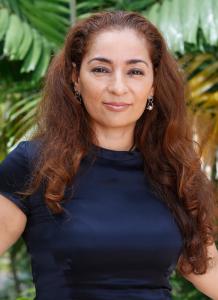Alejo Campos
Regional Director for Latin America, the Caribbean and Bermuda for Crime Stoppers
Víctor Hugo Guerra
Legal Director for Latin America and Canada for Protection against Illicit Trafficking, Philip Morris International
Transnational organised crime has found ways to continue its illegal activities despite the pandemic: How did criminal groups prepare for the Corona Crisis? To what extent have they taken advantage of the needs of the most vulnerable population groups? Which sectors have been most affected? And how are the security authorities reacting?
Particularly in the current situation, which is marked by the COVID-19 pandemic, countries, societies, companies and people feel the need to connect with eachother in new ways. For this reason, new e-commerce platforms, social networks, websites and other digital tools are emerging in the context of the digital transformation with ever-increasing speed. Transnational crime has also managed this transition efficiently and effectively by shifting to digital crime or by making use of digital technologies.
Their criminal activities now include cyber attacks, social network infiltration, digital fraud, trading in electronic or digital currency and the recruitment of IT specialists. Transnational Organized Crime is leaving the Dark Net and settling in the transparent net. They can use it without major restrictions, as the security authorities currently possess only limited resources. The speed with which these groups can change has also made it more difficult to get hold of them.
Governmental, international, public-private, civil society and civil organisations must therefore come together to address these threats. For this reason, Alejo Campos and his organization Crime Stoppers are looking for forms of cooperation to combat transnational crime which infiltrates the entire society. Their platform tupista.org is linked to the state security authorities and is secure and anonymous, so that everyone can use it safely and without hesitation to learn about transnational crime.
In the past, the development of digital technologies has been pursued very openly and with few restrictions. However, we can now also see that these technologies not only have many advantages, but also certain disadvantages. Especially in these times, it is obvious how easily transnational criminal organizations can use digital technologies for illegal purposes due to a lack of regulation and control. It is therefore time to develop effective regulations against illegal use. An example of this is the action taken by Facebook and Instagram, which are placing greater restrictions on content on their networks in relation to alcohol, tobacco and electronic cigarettes.
Consumer education is another way to stop illegal trade and smuggling, which is a major component of transnational crime. Information must be provided about the fact that these organisations use illegal trade to diversify their illegal businesses, which include counterfeiting, extortion, kidnapping, arms and drug trafficking and trafficking in human beings.
Organised crime infiltrates all sectors of society and causes damage of many kinds, from corruption in governments to damage to individual citizens. They also take advantage of the plight of small and medium-sized enterprises to involve them in criminal activities. Victor Hugo Guerra and Alejo Campos therefore agreed that measures against these structures must be made public in order to raise awareness of rules and regulations and to show illegal providers ways out.
COVID-19 affects compliance with the SDG and Agenda 2030, which is why the population is currently even more at risk of being involved in criminal activities by criminal organizations. In general, these organizations benefit from high profits, differences in price and taxes, insufficient controls and laws, agile global distribution channels, unfavorable economic conditions, lack of information and/or education.
This often gives them great power and influence. It has been shown that regulations and controls have worked better in markets than bans, as regulations promote responsible trade, whereas bans often lead to the search for illegal alternatives. https://unsdg.un.org/sites/default/files/2020-03/SG-Report-Socio-Economic-Impact-of-Covid19.pdf
Another alternative to better secure marketplaces is trademark protection. One example is Project Zero, Amazon's latest initiative to combat counterfeit products sold on the company's website. Once approved, brands joining Project Zero can remove fake product offers directly from their online website. Similarly, other marketplaces, such as Alibaba and Mercado Libre, also offer so-called AAA certificates to protect against counterfeiting. International bodies that support trade include the United Nations Commission on International Trade Law, the World Trade Organization and the International Intellectual Property Organization (WIPO).
Finally, the recommendations for trade and consumers are: knowledge of the business and its stakeholders, effective regulation, no bans, public-private partnerships, consumer and user education, inclusiveness and transparency, and international cooperation between key players.
You can follow the ADELA Digital Conference on the @kas_adela and @KAS_Panama channels on Facebook, Twitter, Instagram and YouTube.
Konrad Adenauer Foundation e.V.
By:
Yadira Gratacós
Project Coordinator




